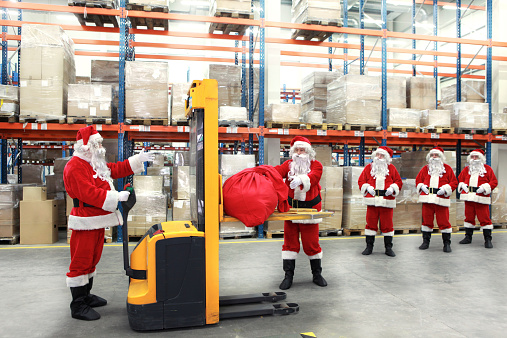Can safety technology reduce repetitive strain injuries?

Workers in manufacturing often need to perform repetitive tasks. While many tasks in manufacturing might not seem strenuous on the surface, they can have a harmful impact if performed over and over again.
Repetitive stress injuries, in fact, are among the most common workplace health-related issues, according to an article in EHS Today that outlines how manufacturers can reduce these injuries. An injury from repetitive strain can cause damage to soft tissue and tendons and may sideline a worker for weeks, months or even permanently.
How safety technology can help
According to OSHA, it costs U.S. employers about $1 billion a week in direct costs linked to injuries. Companies dealing with repetitive stress injuries have to make compensation payments, cover medical expenses and legal services, and absorb the cost of lost revenue due to a reduction in productivity.
Manufacturers certainly don’t want to bear the burden of these costs. It’s in their best interests to keep workers safe. That’s why it’s critically important for them to pay proper attention to ergonomics. A hand drill, for example, might not cause an injury if used by a worker only once a day. Many manufacturers need workers to use the tool throughout the day. A single worker might tighten thousands of fasteners in one workday, which over time can result in a number of problems:
- Fatigue
- Hand and arm stress
- Injury
Repetitive stress injuries can be reduced if employers bring new technology into the workplace. EHS Today describes how manufacturers today can equip their shops with ergonomically designed tools that reduce the stress on the operator. Recent innovations have made it possible for workers to use fastening tools that deliver short pulses of energy into a fastener during tightening. This allows the worker to perform repetitive tasks with a smaller risk of injury than if performed on tools not equipped with the technology.
EHS Today writes about tools that reduce torque reaction in the fastening process. These tools, including power drills, can be set to one of three modes:
- Ergonomic mode, which is ideal for hard joints or when arm, wrist or tool angles are difficult
- Performance mode, which is the best all-purpose mode
- Productivity mode, which is the fast mode and is ideal when high production rates are required
A responsibility to keep workers safe
Manufacturers today can choose from a wide variety of technologies that reduces the amount of force transferred from the tool to the worker using it. Manufacturers have a responsibility to ensure a safe work environment, which is why it’s critical for them to consider upgrading to new ergonomic tools.
EHS Today reports that workers who use reduced reaction technology work faster and are more comfortable. The technology reduces the number of repetitive stress injuries from the aggressive impact of using a tool several times throughout the day. Assembly workers should talk to their supervisors to find out if they are using ergonomic tools.
If you or a loved one sustained a repetitive stress injury, contact an experienced work injury attorney as soon as possible. Your employer or the insurance company may downplay the injury. You may be told to return to work before you’re fully recovered.
You don’t have to deal with your employer and the insurance company on your own. Contact the Law Offices of Deborah G. Kohl. Trust us to handle your claim while you focus on your recovery.

